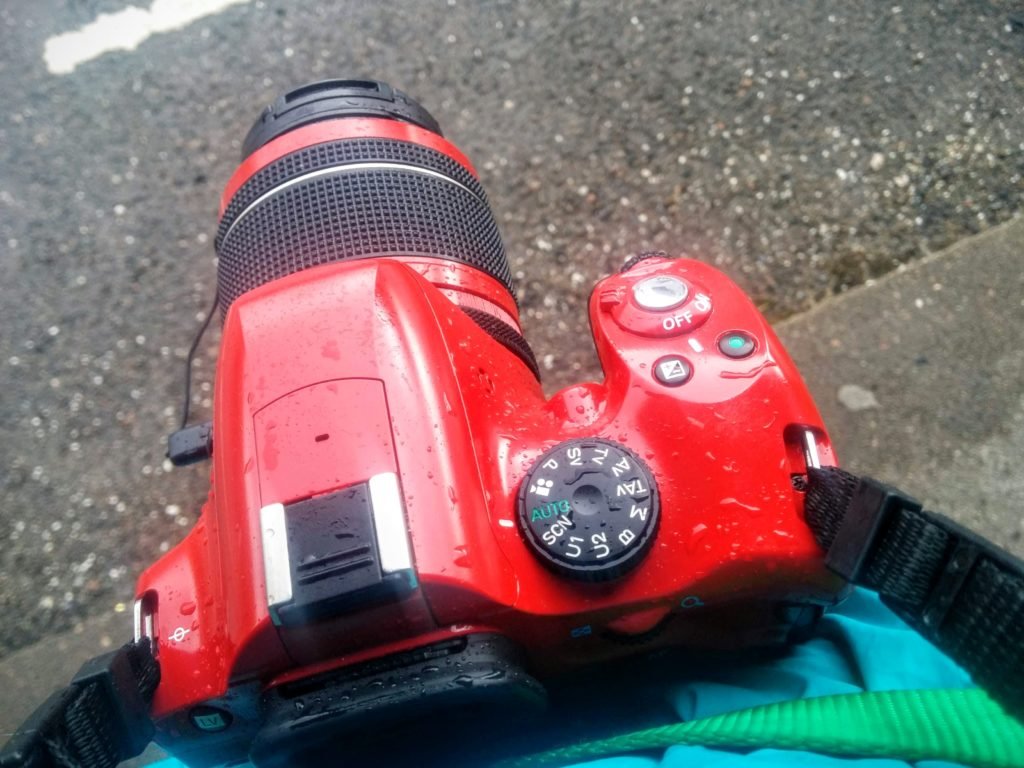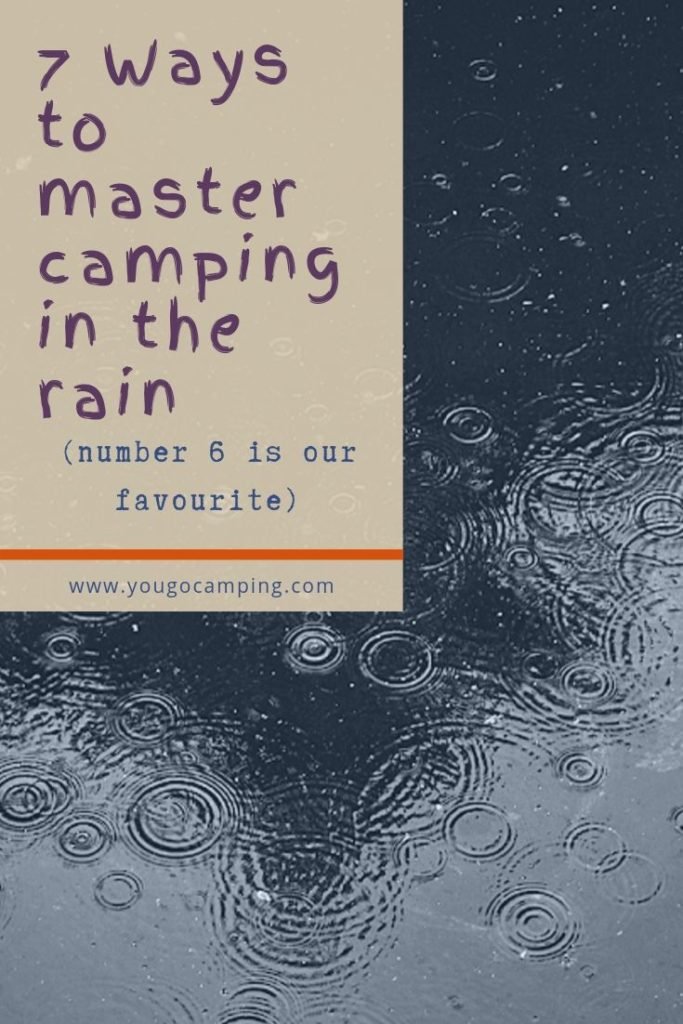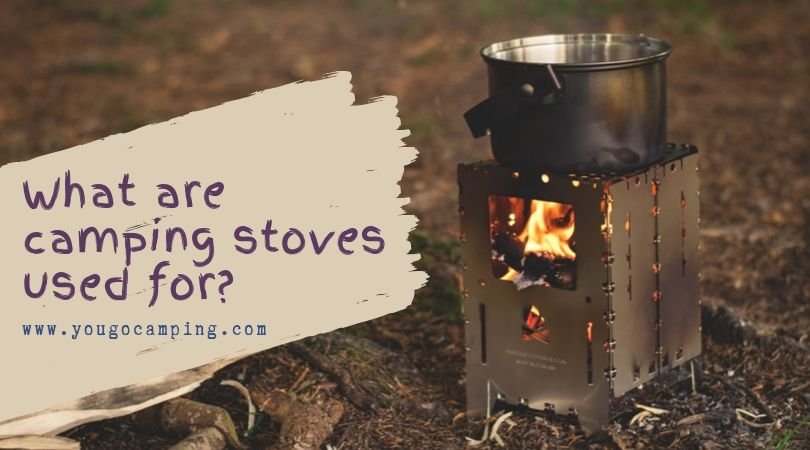Camping in the rain isn’t much fun. We have to be honest here. Fee and I have camped in all weather, rain wind, snow, hail, sunshine, lightning. It can actually be really fun if you’re prepared for it, but when the rain catches you off gaurd then it’s not fun. This post will hopefully give you a few lesser-known tips to make that rainy camping experience a little better.

In 2015, our 16-day road trip around Scotland was cut short after 9 days of solid rain. There’s only so many moody skies photos of mountains you can take before you’re begging for some sunshine. Add to that wet gear, wet clothes, wet dogs, and an impending chest infection and it became apparent that our holiday was over.
In 2007, we were camping out for Summer Solstice. The weather was absolutely wonderful, then suddenly it turned. We had 13 hours of torrential rain hammering down on our teepee. It’s the only time we’ve actually ditched the tent (when we gained an indoor water feature) and ended up sleeping in the toilet bock. Not our finest hour!
There have been many other camping experiences marred by the Great British Weather, but it’s a lot easier to stay happy end enjoy yourself if you’re prepared beforehand. Bringing along a few extras, packing in a certain way, and picking the right location can make or break the experience.
1. Choose your location carefully
The MOST important thing is to choose your location carefully. In the UK, where wild camping isn’t really permitted in most areas it’s important to pick a good pitch for your tent. If you’re in a caravan, this will be a bit harder because most campsites give you a specific pitch. A tent, however, can usually be pitched in most places.
When we were camping at Summer Solstice in 2007, we pitched at the top of a slope, we weighed down the teepee with rocks, had waterproof clothing, all electronics and clothing in waterproof bags and still ended up ditching the tent for a dry toilet block. Sometimes you just have to.
We didn’t have it too badly though, there was a couple camping at the bottom of the hill (bad idea) whose tent got completely flooded and water got into the engine of their car. They turned it on in the morning to try to dry off and warm up and ended up needing to call the fire brigade. More reason never to camp at the bottom of a hill!
Tips for finding the right rainy camping location:
- Hills – Stay away from the bottom of hills. Always camp at the top, even if it’s a small incline, pitch at the top.
- Aim for a slight slope – as with the hilltop, camping on a slight slope will allow the water to run and not collect under your tent.
- Stay away from water sources – Do not camp right next to that lovely river or pond. A light sprinkling of rain will be fine, but 8 weeks of rain followed by 12 hours of solid torrential downpours may mean the river, stream, or pond overflows. Right into your tent. If the water source is down a large slope, a good few feet down, you may get away with it. . It wase’d suggest it’s safer not to chance it.
- Pitch your tent properly – use all the guy lines and hammer pegs right down at a 45-degree angle (not straight vertically down). Don’t be afraid to find some big stones or rocks to weigh it down and give the water somewhere to run to.
- Waterproof your gear BEFORE you go – We always forget this one, but it is really important. Put your tent up in your garden (or a local recreation field) on a sunny day and spray it with a waterproofing solution (we use Nikwax). Pay close attention to the seams especially around the door area. Let it dry for about an hour or until it’s fully dry before packing your tent down.
- Take a tent with a porch – This is vital, you’ll need somewhere to put your wet boots and clothes. If your porch hasn’t got a floor, get an extra groundsheet or tarp for the ground.
2. Take extra tarps or groundsheets and guy ropes (paracord)
A tarp and a groundsheet are roughly the same. Our US friends tend to call them tarps whereas we’ve traditionally called them groundsheets in the UK. The only difference sometimes is that groundsheets may not have eyelets and tarps generally will. Always check this before you buy one (or a dozen!) as you’ll want the ones with eyelets over the ones without.
A tarp can be used in almost limitless configurations when combined with paracord (or guy ropes) and some form of poles or trees. Most of the time on UK campsites you’re not going to have a tree to tie your ropes to. We’d suggest rigid poles like walking poles would be a good alternative.
Put a tarp under your tent to give another layer of protection to stop water seeping up. Use another tarp to extend the porch area of your tent. This means you can take off wet clothes under your extended porch before getting into your tent and not get even wetter. Be warned though, as much as tent manufacturers seem to think that rain falls straight down, it really doesn’t. If you can create an area with a roof and side-wall with your tarp you will be a lot better off!
Extra tarps can be used as more protection for your tent when pinned above it, or for covering things like bikes and bulky equipment.
Camping when it’s cold can be fun, and these tips will help!
3. Dry sacks/zip lock bags for clothes and electronics
Never underestimate the power of a dry bag if you’re camping in the rain! These needn’t be expensive, a simple zip-lock bag will do the trick for the most part. Proper dry sacks are a lot more durable if you are regularly camping in the rain.
Put your clothes into dry sacks before putting them into your backpack. The same goes for your sleeping bag and all electronics. This is actually a great way to keep your backpack organised, what a bonus! I’d suggest, if you can, having a few dry sacks with different days of clothing or types of clothing. Socks and baselayers really must be kept dry so make these a priority.
Dry sacks can be expensive, especially the good ones. If you can’t afford to get a few, get a bigger sack and use zip lock bags to separate out your clothes, put the zip lock bags into the one big dry sack and you’ve got double the protection against the elements!
If you’re out and about in the rain with your backpack, make sure to choose one with a waterproof cover. You can buy a separate waterproof cover if it hasn’t got one. No matter how “waterproof” most mid-range and cheaper backpacks claim to be, they are very rarely waterproof enough to deal with a decent downpour!
Keep all electronics (phones, batteries, cameras, charging plugs, etc) in a waterproof bag at all times when not in use, and use them sparingly. You’ll thank us later!

4. Tent carpet in the porch
This one may seem like a bit of a luxury. It’s probably is only really suitable for those who are car camping in the rain, but a rug or tent carpet can make all the difference!
Just like putting down a mat at your front door, a rug in your porch can be a great place to wipe off and keep wet muddy boots and clothing. It will also keep the moisture in one place. The massive downside with waterproof flooring is that it doesn’t allow the water through to the ground. This means there’s nowhere for it to go except hang around. Whilst you can construct a gully of sorts to allow it to run, a carpet or rug will soak up most of it easily.
If you really can’t spare the weight or space for a rug, you could try taking an old towel with you and using that on the floor. Just be prepared for it to get ruined with mud you may not be able to get out when you get home.
5. Deck of cards & snacks
In the UK, you don’t really have to worry about wildlife like bears entering your tent to go after food. If you know you’re going to be camping in the rain for at least or a few hours of your trip, get some snacks in to see you through.
There is some logic behind this. You may not be able to cook dinner that night or make lunch. Having some snacks (even unhealthy ones like crisps!) will at least tide you over so you’re not dealing with ‘hanger’ as well as rain!
It’s tough keeping a fire going in the rain, gas stoves are a lot easier. Find the best one for you here.
Why pack a deck of card for camping? Simple, there is an infinite amount of games you can play to pass the time. Even if you get bored playing cards you can always build a card house. Or throw them at your sister when you’re fed up with the rain. Anything to keep you entertained when you’ve been stuck in a tent for the last 10 hours!
6. Go To The Pub
This one really can’t be discounted!
We were on our way to Sunrise Festival one year when it was cancelled en route due to the weather. We had no way of getting home because we were already on the train and nearly there. We got off at Yeovil train station and found a campsite nearby who had spaces. There was a really friendly pub down the road which provided a dry and warm refuge from the rain. They also let us charge our phones.
Not all landlords will be super happy with you trudging into their pub with your wet muddy clothes begging for a plug socket. However, most little independent pubs will take pity on you if you are polite. Buy yourself a pint and a decent pie and chips, and enjoy some warm dry indoor time by the fire. Bonus points if they have the radiators on and don’t mind you draping wet clothes over them.
7. Embrace camping in the rain, declare yourself Atlantis, and have an amazing breakfast!
Camping in the rain and everything is wet? There’s no chance of drying off and not a pub for miles? A small river is running through your tent and your picnic table is under half a foot of water?
As long as you’re safe and not in any immediate danger, just remember it’s only water. Make the best of it, rescue what you can, and try to see the lighter side.
We were camping in the rain at a reenactment in 2012. It had been raining for 8 weeks prior and we were told: “don’t worry, the site has £13 million of drainage systems installed, it will be dry as a bone”. Safe to say that wasn’t entirely accurate. When we woke up there was a river flowing through the campsite.

One group’s tents were under a foot or so of water. They got their breakfast stuff out, had a group fry up and declared themselves Atlantis! Sure they were wet and cold, but they had a great time together, and that’s what it’s all about.
Have you got any tips for camping in the rain? Pop them in the comments. Found this useful? Don’t forget to pin it!



0 Comments